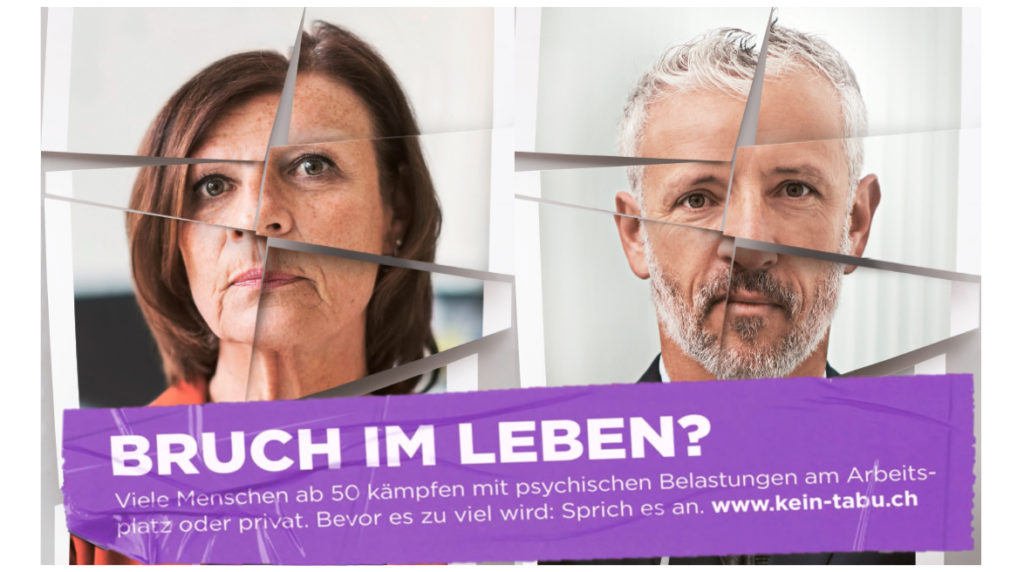In March 2017, the Werner Alfred Selo Foundation, in cooperation with Life Science Communication, launched the 4th campaign on mental illness. Under the slogan «Bruch im Leben?» (break in life), it advocates an open approach to psychological stress and is aimed at the 50+ generation and their employers. With specific support, the campaign aims to improve the early detection, prevention and intervention of mental illness at the workplace.
The 50-59 year olds are most often affected by burnout. Every second employed person over 50 feels exposed to psychological stress at work. There are many reasons for this: increasing productivity pressure, the expectation of constant availability, loss of motivation or fear of losing a job can play a role. The consequences are questions of meaning, identity crises or existential fears. Such a «Bruch» (break) in working life also causes cracks in other areas of life, for example leads to relationship conflicts, sleep disorders or even mental illness.
But the taboo is still deep, especially in the workplace. Out of shame and fear of a career break, many of those affected prefer to remain silent rather than seek help. This is where the campaign «Deine Psyche? Kein Tabu!» (your psyche, no taboo) by the Werner Alfred Selo Foundation is set at. Under the slogan «Bruch im Leben?» it is targeting the 50+ generation in her fifth campaign year and advocates an open approach to psychological stress. Employers receive help in dealing with employees with psychological stress in the form of pragmatic guidelines, information brochures and short checks for managers and employees. Creative posters and give-aways are also available to raise awareness.
Companies are invited to tackle the topic of mental health and to support the campaign «Deine Psyche? Kein Tabu!» campaign in their company: Orders on www.kein-tabu.ch.
On behalf of the Werner Alfred Selo Foundation, Life Science Communication is responsible for the overall concept, planning and implementation of the campaign, which has been present for five years with various contents and for different target groups. It is supported by the Canton of Zug and numerous companies, organisations and personalities.

